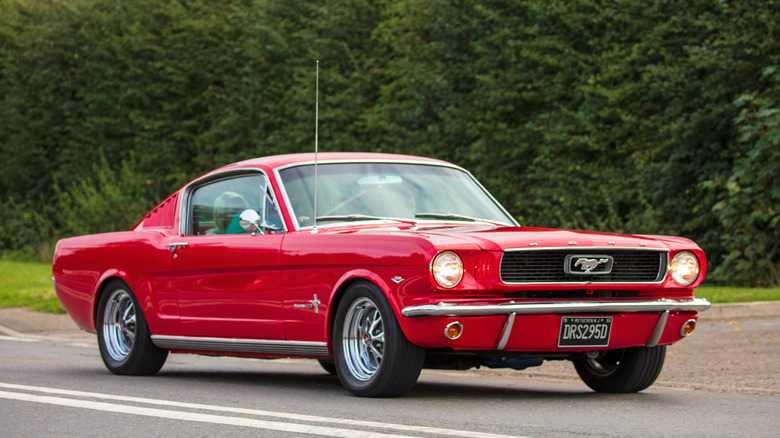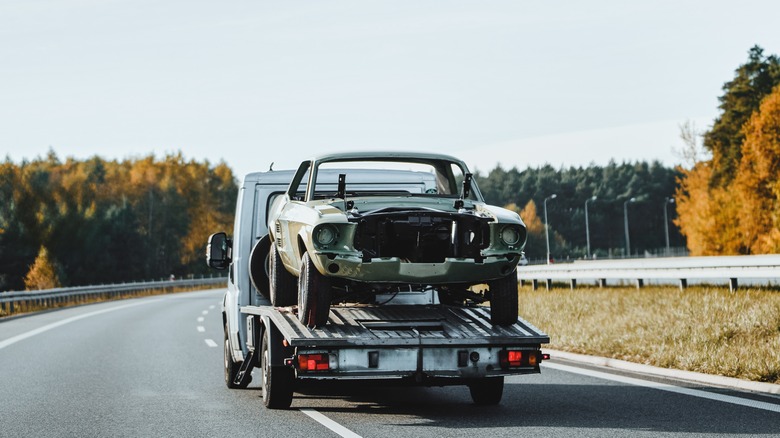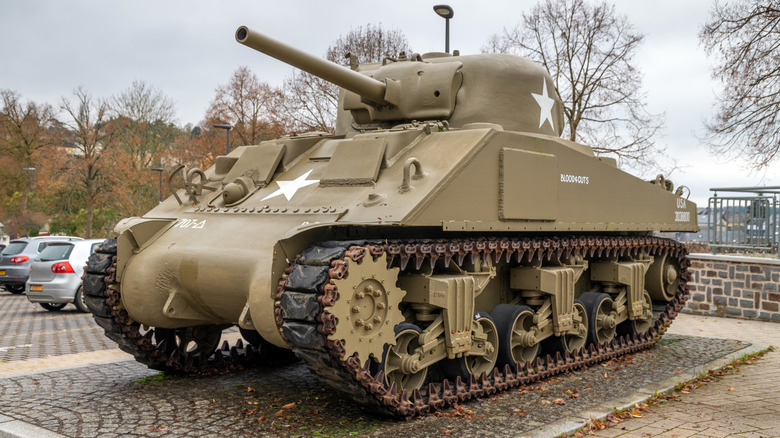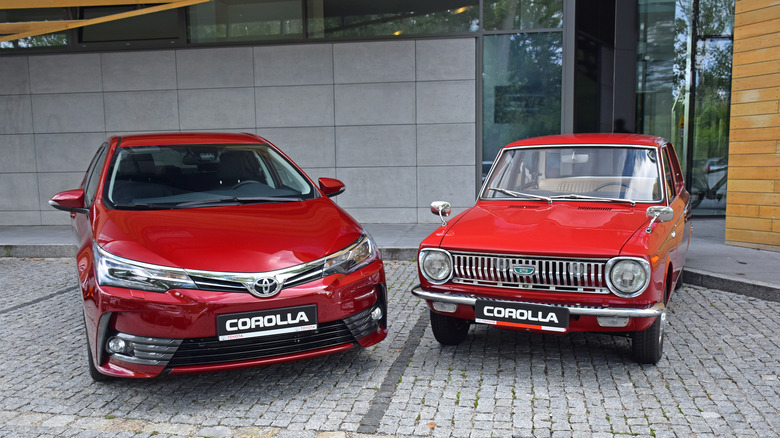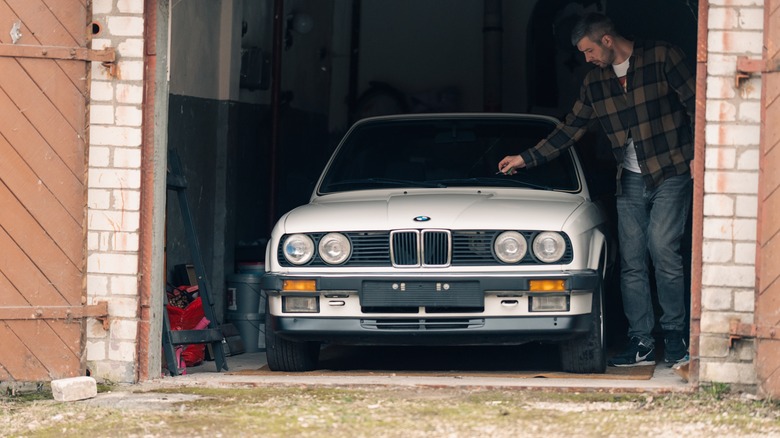5 Things To Consider When Purchasing Classic Car Insurance
You just got the classic car of your dreams — whether it's a vintage muscle car, a classic European roadster, or even something that just oozes charm like the VW Bug, it's going to have a common requirement: insurance.
While you can get a regular policy for your classic, it may not be the best option. First, there can be a price difference between classic and standard insurance. Depending on how you intend to use the car, you may cost yourself a chunk of cash. That's money you could instead blow on obscure original parts, fuel additives, or repairs you'll be doing every time that piece of history you're driving decides to break down.
Then there are coverage specifics to consider because the policies have different stipulations and payouts. A standard policy may not cover your classic the right way, and mayve be useless should the worst happen. It's important to point out that policies, requirements, and various other stipulations will differ from state to state, country to country, and between insurers themselves. This article can be used as a general guide to choosing. As with any other financial decision, you need to check specifics before making decisions. Still, one piece of general advice does apply in most places: shop around as one insurer may have a specific policy feature you need, or offer a substantial saving when compared to your other options. Beyond that, here's a rough look at what you can expect from a classic car insurance policy.
Here's what classic car insurance can cover
You may wonder what classic car insurance can cover, and if you need it at all. In pretty much all states (with the exceptions being New Hampshire and Virginia) car insurance is a legal requirement. So if you want to take the vehicle on public roads, you need liability coverage at a minimum. But a classic is often treasured and can be expensive to repair or replace. It stands to reason then that you should opt for a bit more than that. Plus, most insurers don't offer a "liability only" option for classics.
In terms of coverage amounts, classic car insurance differs from traditional insurance. If you write off something like a fully covered, unmodified 2020 Mustang, you'll get the assessed value of that Mustang as a payout. Classics are a bit more complex as their value fluctuates, appreciates, and can be harder to pin down. As a result, a value figure is usually agreed upon between the owner and insurer when the policy is taken out. You may also be able to add a clause that lets you keep the totalled vehicle too. Theft, accident damage, and damage due to things like fire or vandalism are usually covered by the policy.
Parts coverage can be set so only original parts are used for covered repairs, rather than cheaper aftermarket options. You can even insure a classic that you're still working on, and reassess the policy as progress is made.
The definition of classic is surprisingly broad
If you're looking to import a vehicle, the NHTSA defines a classic as any vehicle that rolled off the production lines more than 25 years ago. Those vehicles will likely be eligible for classic car insurance, but an insurer's definition of classic is usually a lot broader than the government's. To start with, many insurers will cover a car that is over 20 years old in certain circumstances, so if it's not an import, you won't have to sit around waiting. "Collectable value" is a pretty vague term though, and there's likely a list each insurer has — though you can probably make a case to a broker if your vehicle is truly exceptional.
Some brand-new cars may also fit the "classic" definition as far as insurance is concerned. These vehicles likely tick a lot of the other boxes too. If you've managed to get a Ferrari or even a Corvette in your garage, you may convince an insurer to give you a Classics policy. This will vary by state and insurer, but it never hurts to ask. If you don't ask, you don't get.
According to Progressive, the insurance applies to a wide range of vehicles, including: "vintage motorcycles, military vehicles, milk trucks, sports vehicles, kit cars, exotic cars, street rods, and all antique vehicles, including tractors." Again, the exact list will vary by insurer, so if your weird World War Two jeep or helicopter hybrid needs coverage shop around.
It's not for a daily driver, even if said daily is a classic
With insurance, certain assumptions are made. In the case of classic car insurance, it's assumed that your vehicle will spend most of its time in your garage and not on the road. For many classic car owners, this isn't a problem. Their vehicles are purely there for pleasure and possibly the occasional drive to a concourse or similar event.
The logic behind this is quite simple. The more time a classic spends on the road, the higher the chances of being involved in an accident. Some policies aimed at classic cars will be invalid should the car be used for things like commuting or running regular errands. While it may sound difficult to enforce, especially in the case of errand-running, there are parts of the policy that are designed to make daily use of your classic impractical. Examples of this include strict mileage limits. A 45-minute, each-way daily commute will really rack up the miles over the year, and if your classic vehicle goes beyond a certain mileage it may either cause your premium to skyrocket or result in the policy being terminated. Classic car insurers may also insist that policy holders have at least one, non-classic vehicle designated for daily use.
You'll be scrutinized as much as the car
Although it will vary by insurer, state, and vehicle — classic car insurance premiums tend to be lower than your standard vehicle's plan. The cars covered may also be more expensive than a regular vehicle, and the parts required for any repairs could also be excessively pricey. Because of all of this, insurers have to balance everything out somewhere.
The fact that the vehicle will see limited use compared to a regular road car reduces risk greatly, and the person driving it will need to be pretty low-risk as well. If you have more than one at-fault accident within the last few years, then you may struggle to find an insurer who will give you a classics policy. The same goes for moving violations, so a couple of speeding tickets, a disregarded stop sign, or a mistimed red light might be enough to disqualify you. Although this may seem harsh, it's actually on the more lenient side of things when it comes to classics insurance. Some insurers will scrutinize your driving record going back five or even ten years when assessing your application.
You need to take care of the car off the road too
In addition to driving carefully, and rarely, on the road, you'll need to take care of your car when it's not being driven too. As well as on-road limitations, some other activities are barred. Racing is generally a big no-no because of the risks involved. So if you want to take your classic on a track, rally with it, or take part in something like a hill climb, you should probably look for a different category of insurance.
Some policies may stipulate that vehicles should be garaged when not in use. Said garage may have to be climate-controlled, but at the very least, it should be fully enclosed and capable of shielding your vehicle from the elements. This serves a couple of purposes. Older vehicles might lack rust and paint protections, parts may also suffer if you leave the vehicle outside. While rust and weather damage may not seem like something an auto insurance policy would generally cover, some policies will pay out under certain circumstances. These can include accidents and natural disasters, and the exact terms will be laid out in your policy. One thing is for certain though, storing your vehicle negligently has a good chance of invalidating a claim.
Some older cars are also far easier to steal. They may predate immobilizers or feature an ignition cylinder that's either easily bypassed or so worn that the car can be started with something like a flathead screwdriver. Either way, a garage helps. If you're taking your classic on the road for whatever reason, then secure parking is likely a necessity for any overnight stays.
